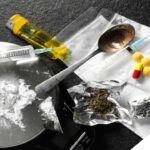Introduction
The Drugs and Cosmetics Act, 1940 regulates the import, manufacture, distribution, and sale of drugs and cosmetics in India. It ensures that drugs and cosmetics sold in the market are safe, effective, and meet quality standards. The Act covers both modern and traditional systems of medicine, including Ayurveda, Siddha, and Unani. It also sets out clear definitions, standards, and regulatory bodies to enforce compliance. By controlling misleading advertisements and substandard products, the Act protects public health and promotes consumer safety.
What Are The Definitions Under the Drugs and Cosmetics Act
The Drugs and Cosmetics Act defines important terms to ensure clarity and consistency in its application.
Ayurvedic, Siddha, and Unani Drugs
These are medicines meant for internal or external use in humans or animals. They help in diagnosing, treating, preventing, or relieving diseases or disorders. These drugs must be made strictly as per the formulas in the authoritative books listed in the First Schedule.
The Advisory Boards
The Act mentions two boards. For Ayurvedic, Siddha, and Unani drugs the Ayurvedic, Siddha, and Unani Drugs Technical Advisory Board (Section 33C) is established. For other drugs and cosmetics the Drugs Technical Advisory Board (Section 5) is present.
Cosmetics
Cosmetics include any item used on the human body to cleanse, beautify, or improve appearance. This includes products that are rubbed, poured, sprinkled, sprayed, or otherwise applied. It also covers ingredients used in these products.
Drugs
The term “drug” covers:
- Medicines for internal or external use in humans or animals.
- Substances for diagnosis, treatment, prevention, or relief of diseases.
- Products like mosquito repellents applied to the body.
- Substances (not food) that affect body functions or destroy insects and vermin.
- Components of drugs, such as empty gelatin capsules.
- Medical devices used internally or externally to treat or diagnose diseases, as notified by the Central Government.
Manufacture of Drugs or Cosmetics
“Manufacture” includes any process used to make, label, pack, alter, or treat a drug or cosmetic for sale or distribution. It does not include retail-level compounding, dispensing, or packaging.
Import of Drugs or Cosmetics
“To import” means to bring drugs or cosmetics into India. This includes all grammatical and related forms of the term.
Patent or Proprietary Medicines
For Ayurveda, Siddha, or Unani systems, these are formulations with only those ingredients listed in the First Schedule. It excludes injectables and formulations already included in authoritative texts.
Conclusion
The Drugs and Cosmetics Act plays a vital role in maintaining the quality and safety of drugs and cosmetics in India. It protects consumers from harmful, fake, or untested products. Through strict guidelines and regulatory oversight, it ensures that only approved, reliable products reach the public. The Act supports ethical medical practices, strengthens trust in healthcare, and promotes the growth of the pharmaceutical and cosmetic industries with legal backing.








